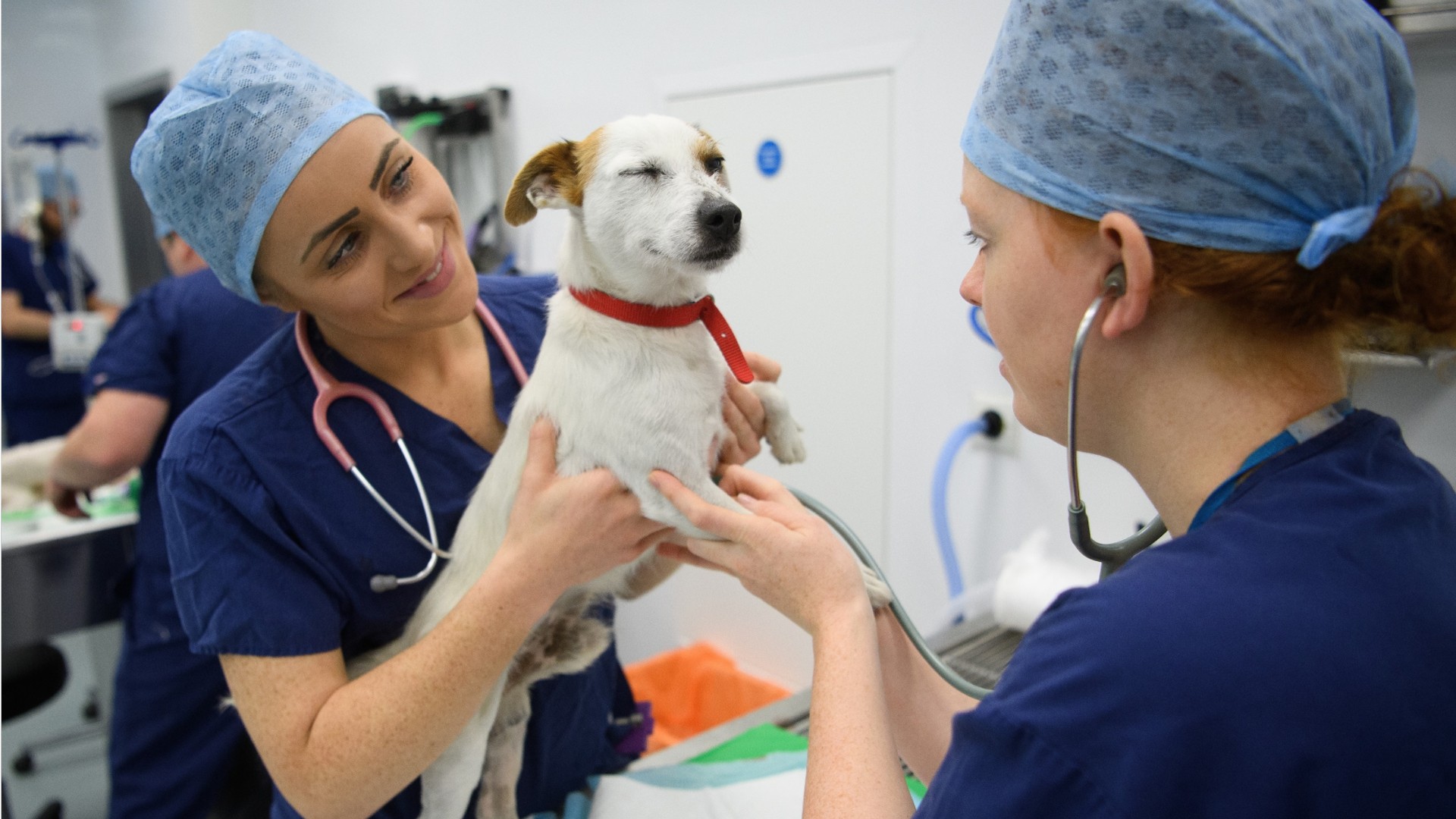Veterinary Technologists & Technicians
Certified Veterinary Technician (CVT), Licensed Veterinary Technician (LVT), Registered Veterinary Technician (RVT), Veterinary Technician (Vet Tech)
What they do:
Perform medical tests in a laboratory environment for use in the treatment and diagnosis of diseases in animals. Prepare vaccines and serums for prevention of diseases. Prepare tissue samples, take blood samples, and execute laboratory tests, such as urinalysis and blood counts. Clean and sterilize instruments and materials and maintain equipment and machines. May assist a veterinarian during surgery.
On the job, you would:
- Administer anesthesia to animals, under the direction of a veterinarian, and monitor animals' responses to anesthetics so that dosages can be adjusted.
- Care for and monitor the condition of animals recovering from surgery.
- Maintain controlled drug inventory and related log books.
Knowledge
Health
- medicine and dentistry
Business
- customer service
Arts and Humanities
- English language
Math and Science
- biology
Skills
Basic Skills
- listening to others, not interrupting, and asking good questions
- thinking about the pros and cons of different ways to solve a problem
Problem Solving
- noticing a problem and figuring out the best way to solve it
Abilities
Verbal
- communicate by speaking
- listen and understand what people say
Ideas and Logic
- make general rules or come up with answers from lots of detailed information
- use rules to solve problems
Hand and Finger Use
- hold or move items with your hands
- keep your arm or hand steady
Attention
- pay attention to something without being distracted
Personality
People interested in this work like activities that include practical, hands-on problems and solutions.
They do well at jobs that need:
- Stress Tolerance
- Self-Control
- Cooperation
- Cautiousness
- Integrity
- Attention to Detail
Technology
You might use software like this on the job:
Data base user interface and query software
- FileMaker Pro
- Microsoft Access
Presentation software
- Microsoft PowerPoint
Medical software
- McAllister Software Systems AVImark
- Veterinary practice management software PMS
Education
Education: (rated 3 of 5)
high school diploma/GED or
associate's degree
usually needed
associate's degree
usually needed
Job Outlook
Bright
New job opportunities are very likely in the future.
Explore More
- Cardiovascular Technologists & Technicians
- Medical Assistants
- Surgical Assistants
- Surgical Technologists
- Veterinary Assistants & Laboratory Animal Caretakers
You might like a career in one of these industries:
See more details at O*NET OnLine about Veterinary Technologists & Technicians.





